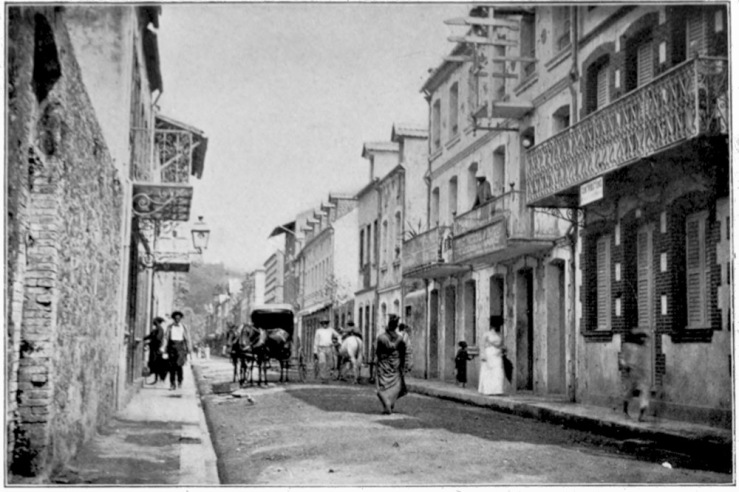Martinique
Martinique is an island territory controlled by France in the Caribbean. There are two distinct seasons in the region, rainy and dry, with a climate that stays above 59 Fahrenheit even in extreme cases. Martinique was first claimed by the French around 1658, with its official language being French even today. Although the main religion of the island is some form of Christianity, Encyclopedia Britannica notes that “some people incorporate elements of ‘vodou’ into their beliefs” and some vodou ceremonies are still held today (Encyclopedia Britannica).
As mentioned in the footnotes of Wide Sargasso Sea, it is also worth noting that France and England fought over the territory for an extended period of time. Encyclopedia Britannica details multiple instances of England stealing the territory from France, only to return it after conflict. The last disturbance between the two countries over Martinique ended in 1814, with the island finding itself under French rule once again (Encyclopedia Britannica).
Martinique is where both Antoinette’s mother and Christophine are from originally in Wide Sargasso Sea. Both women are not trusted by anyone in Jamaica and have few friends aside from each other. Granted, this is not the only reason for the distrust, but it is an undeniable part of it. Specifically, Christophine is thought of as shifty and cunning by almost everyone in the book. It is noted that although she could speak fluent English and French, people “would have nothing to do with her” (Rhys 12). This suspicion may partly stem from the conflict between England and France, especially when it comes from white Englishmen, but more interesting is the link between Martinique and witchcraft. Christophine is thought to be someone who practiced vodou, or obeah, even being called “a Martinique obeah woman” by Aunt Cora (Rhys 17). While Antoinette associates it with the killing of chickens as a child and love spells later in life, Christophine makes it seem more cultural, stating that her work will not have the same effect on “beke” or white people (Rhys 68). This is reinforced by the Oxford English Dictionary’s definition of obeah: “Designating a person or thing involved in or associated with the practice of a kind of sorcery, witchcraft, or folk medicine originating in West Africa and mainly practiced in the English-speaking areas of the Caribbean” (Obeah). For Christophine and those around her, obeah may not have been just witchcraft, but a spiritual connection to African culture stolen through colonization. With all of this in mind, through Christophine, Martinique is a symbol of resistance against English norms in more ways than one.
It is also worth reflecting on Christophine’s sympathetic role in Antionette’s eyes and Jean Rhys’ hatred for the English. While most others distrusted Christophine, she is Antionette’s only ally. Given Antoinette’s fate, I wonder if tying Christophine to Martinique serves as a more complex contrast to Anglican culture.
Works Cited
Cornevin, Robert. "Martinique.” Encyclopedia Britannica, 19 Aug. 2021, https://www.britannica.com/place/Martinique. Accessed 5 February 2022.
Detroit Publishing Co., Publisher. Main Business Street, St. Pierre, Martinique, W.I. 1890. The Library of Congress, www.loc.gov/item/2016798797/. Accessed 5 February 2022.
"Obeah, adj. and n." OED, December 2021. https://www.oed.com/view/Entry/129542?rskey=o7jVZ6&result=1&isAdvanced=f... Accessed 6 February 2022.
Rhys, Jean. Wide Sargasso Sea. edited by Judith L. Raiskin, Norton, 1999
Coordinates
Longitude: -61.024174000000
